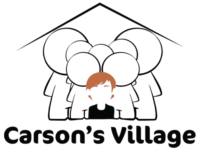Whether it be a lack of support financially or emotionally, or a simple misunderstanding of the emotions involved, the period of grief experienced after the loss of a loved one can be a confusing and overwhelming time. There is no right way to grieve. Sometimes it comes in waves throughout a regular workday, and other times it hits you like a bag of bricks as you lay your head down on your pillow at night.
Grief is often described using a fingerprint or snowflake metaphor because that is exactly what it is: a process in which no two patterns are ever the same. People cope in various ways, such as expressively through activities to keep busy, or internally, such as thinking often about the loved one who passed. Neither process is wrong.
While the process of grieving looks different for everyone, there are healthy ways to deal with your emotions so you’re not feeling crushed by them. As you take this delicate time to heal and find your way forward, keep in mind the following self-care practices:
It’s okay to cry. Crying is a healthy way of processing emotion. Crying can allow us to shed emotions as we go so they do not become overwhelming later on. People who allow themselves to experience this release see an improvement in mood and restorative balance. Don’t feel like you need to hide your pain.
Let go of expectations. Letting go of the expectations of others is essential in your grieving process. Negative self-talk about what other people think can hinder us from experiencing life. It can also hinder us from progress. Know that what you’re feeling during this moment is reasonable because there is no right way to feel.
Be honest with yourself and others. Being honest with ourselves and others about how we’re feeling brings us one step closer to coming to terms with a sudden or tragic loss. If you bump into a friend at a store and they ask how you’re doing, it is okay to answer honestly. If you are more of a private person, is it perfectly fine to keep those details to yourself.
Ask for help. After the loss of a loved one, it is normal for people to experience disinterest in activities that previously brought joy and contentment to their lives. This usually passes with time. If resuming daily activities becomes more difficult for you, seeking the guidance of a mental health professional can help you return to your routine in a healthy manner.
Do something you love. Pain is only temporary, and sometimes taking our mind off of things that ail us can be therapeutic. It can be normal to feel guilty about doing things you love during this fragile period in your life but know that you don’t have to sacrifice that which brings you joy.
Carson’s Village understands how important it is to have a support system during the initial days of the loss of a loved one. To alleviate some of the responsibility, call our advocate support line or fill out a Contact Us form for assistance.
